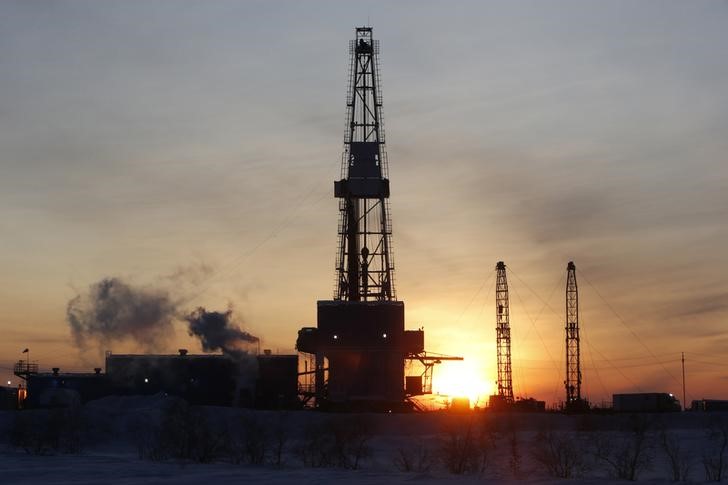By Gina Lee
Investing.com – Oil was down on Friday morning in Asia, with ever-rising numbers of COVID-19 weighing on fuel demand and the U.S. Congress continuing negotiations for a $900 billion economic stimulus bill.
Brent oil futures were down 0.23% to $51.38 by 11:02 PM ET (4:02 AM GMT) and WTI futures inched down 0.04% to $48.34.
Both Brent and WTI futures did not stray far from the nine-month highs seen during the previous session. Oil prices climbed on Thursday over optimism around the bill’s progress and strong Asian refining demand.
“We think markets are still overlooking the near-term demand pressures of rising COVID-19 cases and COVID-19 restrictions in the U.S. and Europe,” Commonwealth Bank commodities analyst Vivek Dhar said in a note.
Investors’ risk appetite grew as Congress inched closer to a deal, which is expected to boost fuel demand. However, there was no deal in sight late on Thursday.
Although Senate Majority Leader Mitch McConnell said that a bipartisan U.S. stimulus deal “appears to be close at hand,” Republicans and Democrats will likely have to work over the weekend to get it through Congress. Also on the table is a $1.4 trillion spending bill for the fiscal year beginning on Oct. 1, which must also be passed by Friday to avert a government shutdown.
Meanwhile, an advisory panel voted 20-0 with one abstention on Thursday to grant emergency use approval for Moderna Inc's (NASDAQ:MRNA) vaccine mRNA-1273. The Food and Drug Administration will meet to discuss the approval, which is widely expected to be granted.
Meanwhile, Pfizer Inc (NYSE:PFE) and BioNTech SE (F:22UAy) are continuing to revise information for their COVID-19 vaccine BNT162b2 after an allergic reaction to the jab was reported in Alaska.
The rising number of COVID-19 cases globally and tighter restrictions in some countries such as Japan, pressure to limit oil supply on the Organization of the Petroleum Exporting Countries (OPEC) and allies, or OPEC+, is growing, according tp ANZ Research.
OPEC+ is currently planning to add 500,000 barrels per day (bpd) of supply to the market from January onwards, the first step towards returning 2 million bpd to the market.
“While rising consumption in Asia and demand hopes linked to a COVID-19 vaccine may help oil prices above this range ($50-$60 a barrel), we think OPEC+ sits on enough spare oil capacity to keep any surge in oil prices in check,” the note added.
